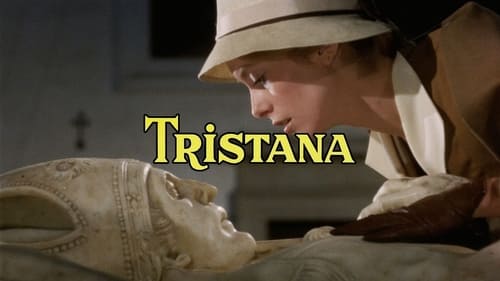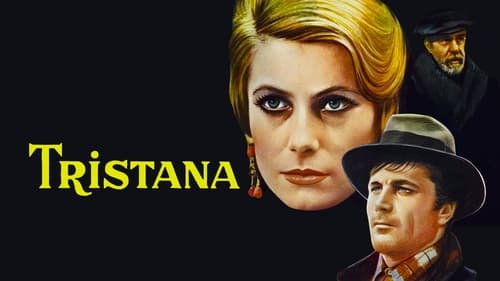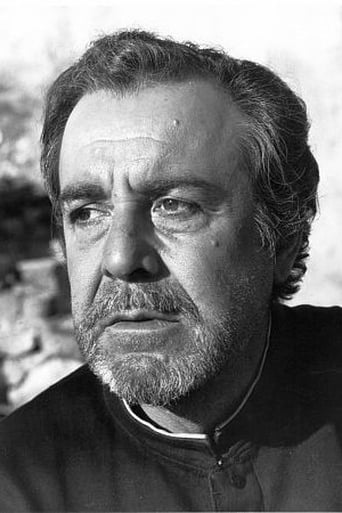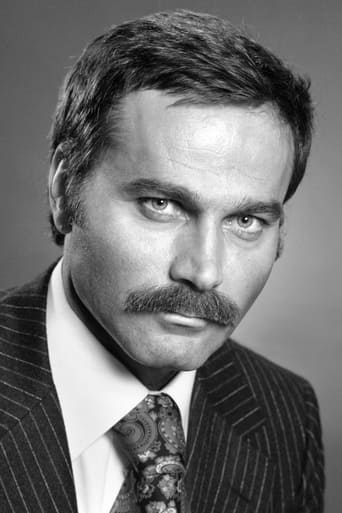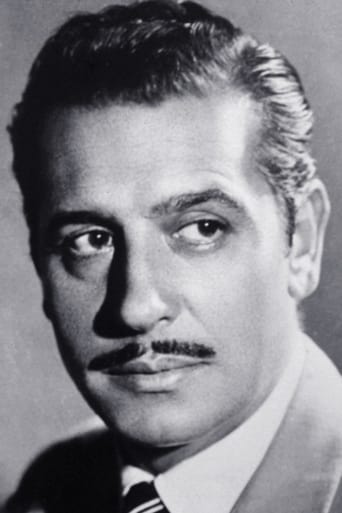Evengyny
Thanks for the memories!
Pluskylang
Great Film overall
Huievest
Instead, you get a movie that's enjoyable enough, but leaves you feeling like it could have been much, much more.
Suman Roberson
It's a movie as timely as it is provocative and amazingly, for much of its running time, it is weirdly funny.
Musashi94
Tristana is a bit of an odd duck in the Luis Buñuel filmography. While the plot feels right up his alley (respected aging aristocrat seduces his ward, leading to conflict when she falls in love with a younger man) there were times were I was wondering if I was really watching a Buñuel film. The director's trademark surrealism is largely absent here aside from a brief dream sequence. All in all, it's solid enough, but not really one of Buñuel's best.In many respects, and rather unusually for Buñuel, this is an actor's film. Fernando Rey and Catherine Deneuve are both exceptional as the aging Don Lope and his ward Tristana, respectively. Rey's performance in particular is one of his finest. His character is probably the highlight of the film, he's very multifaceted and doesn't fall into the typical stereotypes that Buñuel uses to portray bourgeoisie characters. The third main lead, Franco Nero of Django fame, is a bit stiff here but he's not on screen very much compared to the other two leads. Finally, Lola Gaos heads the supporting cast and does a terrific job as Don Lope's housemaid Saturna.Because this is such an actor's film, Buñuel's direction is a bit flat for the most part. He gets a bit creative at the beginning and end of the film but he's a nonentity for the middle portion of the film, which drags on a bit as a result. Aside from the use of snow towards the end, the film isn't much to look at and the cinematography is a little flat at times. The sound design is also rather spartan, there's no score and not much to listen to aside from the dialogue. The effects used to convey one character having their leg amputated are well done however, and the costumes and sets feel very authentic and one never gets the sense that the sense that this historical drama feels staged.In conclusion, the film is definitely worth seeing for Rey and Deneuve's performances but this isn't the first Buñuel I'd show someone who's never seen a film of his as while it is more accessible, it lacks his usual distinctive style and in general isn't one of his stronger works.
gavin6942
When the young woman Tristana's mother dies, she is entrusted to the guardianship of the well-respected though old Don Lope. Don Lope is well-liked and well-known because of his honorable nature, despite his socialistic views about business and religion. But Don Lope's one weakness is women, and he falls for the innocent girl in his charge, seduces her, makes her his lover, though all the while explaining to her that she is as free as he.Buñuel's French investors insisted that Catherine Deneuve be cast as Tristana and his Italian investors wanted young heartthrob Franco Nero to play Horacio. Filming began in September 1969. Actress Vanessa Redgrave was often on the film's set after recently divorcing Tony Richardson for Nero, which caused Nero to often be late or distracted during filming.Although I applaud the casting, I am still not convinced that I like Bunuel's later films. He stopped being outright surreal and got more subtle, which I do not care for. He also became far more political, which I am not necessarily oppose to, but I think takes away from the art. I will definitely have to revisit him again at some point, but I feel like he may be given too much credit.
Robert J. Maxwell
Except for an early flirtation with surrealism, most of Bunuel's movies deal with the loss of innocence and a subsequent outrageous cynicism. This one isn't much different. The innocent Deneuve is entrusted to her guardian, Fernando Rey, an honorable man whose weakness is women. Understandably, he can't keep his gnarled and lecherous old hands off his stunningly beautiful ward. And Deneuve does what she's told, like a compliant pet.Not that Rey is a monster. He's stern, but he has friends he jokes with in the café, he dresses impeccably when he leaves home, and is thoroughly dignified. He hates having the flu because it renders him more human in appearance.Deneuve meets the handsome young artist Franco Nero. These women are always meeting handsome and dashing younger men! But this one isn't the usual rogue because this is not Madame Bovary. Nero whisks her away, unmarried, and later returns to Rey's city, after Deneuve has developed cancer and lost a leg. The aging Rey now wants to marry his ex ward, but she's become a tough nut to crack.Deneuve isn't as glamorous here as she is in some other feature, as in Roman Polanski's "Repulsion", for instance, where her features were framed by a mane of lustrous blond hair. Her hair is dark here, and tied back severely, giving her face a dished appearance. But she's as "mysterious" as ever.It's always hard to tell exactly what she's thinking. Partly, this is because she's not a very expressive actress, and partly because her eyes are usually set at "wide open." I have a feeling that if an ophthalmologist could creep up to her, nose to nose, which is a pleasant enough thought, and peer through her pupil, once he got past all the defensive red reflexes he'd see a slot machine with four windows, always spinning, never stopping, the oranges, apples, cherries, and lemons whirling past.As the passionate and determined boy friend, Franco Nero doesn't do much. But Fernando Rey, while hardly seeming to try, gives us a fully fleshed-out portrait of a man who is filled with old-fashioned courtliness (except for that thing about women) but suffers because he's losing his youth. For a long while, we watch him lovingly treating his graying beard before the mirror.But it's a rather slow movie, despite the universal theme and the effective compositions. It could have used a bit of gratuitous nudity. After all, Deneuve has nothing to hide, as she demonstrated in Bunuel's fascinating "Belle de Jour" a few years earlier. Okay, give us the iconoclasm but can't they hand it out naked?
buyahwa
It's the 1st one I watch for the director.. have chosen it among plenty of other great films for Bergman, Scola, Antonioni and others during Damascus festival so I would say it was disappointing… why? The montage was disastrous; I felt several times during the movie that I was moved harshly by the director from one scenes to another without the slightest care concerning the overall smoothness of the film. The examples are so many, I even cannot recall one.Another thing was the unnecessary scenes and insignificant dialogs which was quite a lot, an example was the dialog took place between the doctor/priest and Deneuve Additionally, there were bad crafted scenes like the last confrontation between Deneuve (playing piano) and her young lover, OR the first confrontation (somehow fight) took place between the two men competing on Deneuve (the slapping thing) and finally the contribution of old man death by Deneuve. Maybe such scenes might be appealing or even touching for lots of people but for me personally they're funny.Many other notes may be added briefly, like long intro without applying the needed depth of characters (the film not the novel) for us audience to get in the mood of the film and create the required solid background about their psychological, mental and social status.But we cannot though overlook the good performance of most actors and the humanistic spirit of the film with all its relevant sub themes like hypocrisy (maybe self deception), love's nature and relativity of honor. But I insist that the approach was primitive.To conclude, the feeling of detachment accompanied me throughout the film, but the way I see it is that film makers will always find it a difficult job to transform novels (with all it's descriptive, sophisticated and elaborative nature) to 2 hours film. Examples are quite a lot


